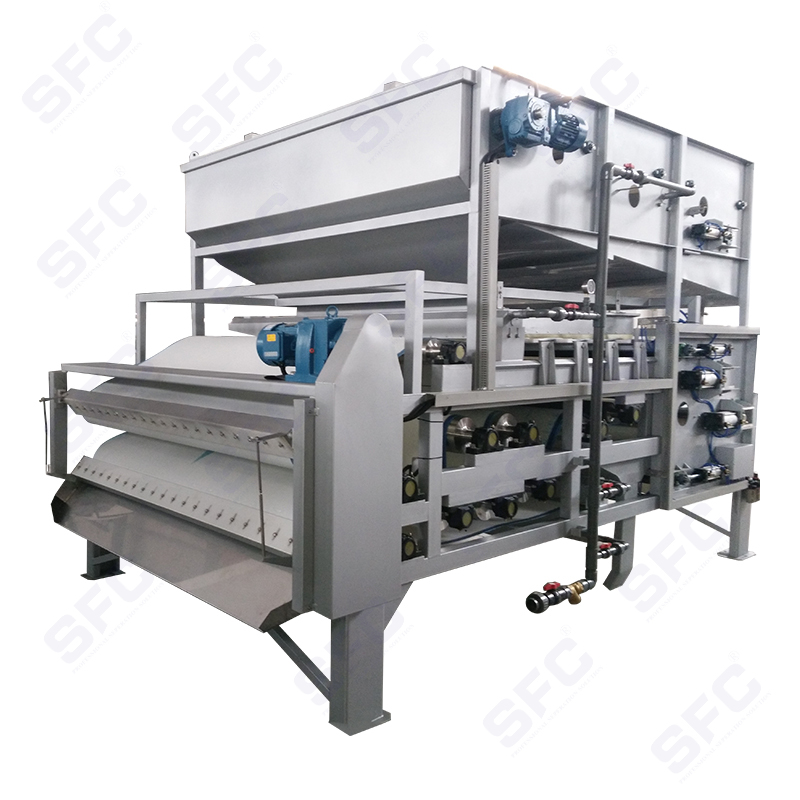How does a sludge dewatering machine contribute to reducing environmental pollution?
In today’s world, the imperative to mitigate environmental pollution has become more pressing than ever. Among the many technological innovations aimed at addressing this challenge, sludge dewatering machines stand out as pivotal tools in industrial and municipal waste management. By efficiently reducing the water content in sludge, these machines transform waste into manageable, environmentally friendly forms, playing a crucial role in safeguarding ecosystems.
Minimizing Waste Volume
Sludge dewatering machines are designed to extract excess water from sludge, significantly reducing its volume. This reduction translates into lower transportation costs and minimized landfill usage. A smaller waste footprint means less land is consumed for disposal, preserving natural habitats and reducing the risk of leachate contamination in surrounding soil and groundwater.
Enhancing Resource Recovery
Beyond waste reduction, these machines enable the recovery of valuable resources. Treated sludge often contains organic matter, nutrients, and energy-rich compounds. By concentrating these components, dewatering facilitates their repurposing. For instance, dewatered sludge can be converted into biofuels, compost, or soil conditioners, reducing dependency on non-renewable resources and contributing to a circular economy.

Mitigating Water Pollution
Improperly handled sludge can release harmful pollutants into water bodies, threatening aquatic life and human health. Dewatering mitigates this risk by producing drier, more stable material that is less likely to leach contaminants. Furthermore, the extracted water can often be treated and reused, reducing the strain on freshwater resources and preventing untreated effluent from entering natural waterways.
Lowering Carbon Emissions
The streamlined transportation and disposal of dewatered sludge significantly reduce greenhouse gas emissions. Traditional sludge, with its high water content, demands more energy for transport and treatment. Dewatering optimizes logistics and cuts down the energy footprint, aligning with global efforts to combat climate change.
Supporting Regulatory Compliance
Environmental regulations are becoming increasingly stringent, particularly concerning waste disposal and water management. Sludge dewatering machines empower industries and municipalities to meet these standards efficiently. By ensuring that sludge is treated to acceptable levels, these machines help organizations avoid fines and reputational damage while fostering sustainable practices.
Promoting Public Health
Untreated or improperly managed sludge poses severe risks to public health, harboring pathogens, heavy metals, and other hazardous substances. Dewatering significantly reduces the moisture content, which inhibits the growth of harmful microorganisms and makes the material safer for handling, transport, and disposal.
Sludge dewatering machines are not merely tools of convenience but vital assets in the global fight against environmental pollution. They epitomize innovation, turning what was once a burdensome waste product into a manageable, sometimes even valuable, resource. By integrating these machines into waste management strategies, industries and municipalities can contribute meaningfully to a cleaner, healthier planet while reaping economic and operational benefits.



 English
English Español
Español













